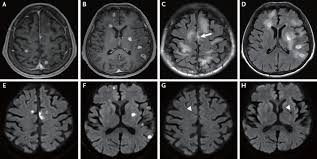Meningitis is a severe infection of the meninges, the protective membranes covering the brain and spinal cord. While various bacterial species can cause meningitis, Klebsiella pneumoniae is a rare but notable pathogen responsible for central nervous system (CNS) infections. Understanding its pathophysiology, risk factors, and treatment is crucial for timely intervention.

What is Klebsiella Meningitis?
Klebsiella pneumoniae is a Gram-negative, encapsulated bacterium known for causing pneumonia, urinary tract infections, and bloodstream infections. When it infects the CNS, it leads to bacterial meningitis, which can have a high mortality rate if not treated promptly.
Causes and Risk Factors
Primary Causes
- Hematogenous spread from other infected sites (e.g., pneumonia, urinary tract infection)
- Direct invasion following head trauma or neurosurgical procedures
- Nosocomial (hospital-acquired) infections, particularly in immunocompromised individuals
Risk Factors
- Weakened Immune System: Individuals with diabetes, chronic illnesses, or undergoing immunosuppressive therapy are at higher risk.
- Neonates and Elderly: These populations have weaker immune defenses, making them more susceptible.
- Hospitalized Patients: Especially those with invasive medical devices such as catheters or ventilators.
Symptoms of Klebsiella Meningitis
The symptoms of meningitis due to Klebsiella pneumoniae are similar to those caused by other bacterial agents but tend to progress rapidly:
- Severe Headache
- High Fever and Chills
- Neck Stiffness
- Altered Mental Status (Confusion, Delirium, or Coma)
- Seizures
- Photophobia (Sensitivity to Light)
- Nausea and Vomiting
- Difficulty in Breathing (Severe Cases)
Complications of Klebsiella Meningitis
If untreated, Klebsiella meningitis can lead to severe complications such as:
- Brain Abscess Formation
- Severe Neurological Damage
- Septic Shock
- Hydrocephalus
- Multi-Organ Failure
Diagnosis of Klebsiella Meningitis
A prompt and accurate diagnosis is essential to prevent irreversible complications. Diagnostic procedures include:
1. Lumbar Puncture (CSF Analysis)
- Increased white blood cell count (pleocytosis)
- Elevated protein levels
- Decreased glucose concentration
- Positive Gram stain and bacterial culture for Klebsiella pneumoniae
2. Blood Cultures
- Identifies systemic infection and helps determine antibiotic sensitivity.
3. Imaging Studies (CT Scan/MRI)
- Detects brain abscesses, hydrocephalus, or other CNS complications.
4. Polymerase Chain Reaction (PCR) and Antigen Tests
- Confirmatory tests for bacterial DNA in cerebrospinal fluid.
Treatment and Management of Klebsiella Meningitis
1. Empirical Antibiotic Therapy
Immediate broad-spectrum antibiotic therapy is initiated before culture results:
- Carbapenems (Meropenem, Imipenem): Effective against Klebsiella pneumoniae.
- Third or Fourth-Generation Cephalosporins (Ceftriaxone, Cefepime): Used for initial coverage.
- Aminoglycosides (Gentamicin, Amikacin): Sometimes used in combination.
2. Targeted Antibiotic Therapy
Once sensitivity results are available, therapy is adjusted accordingly to target Klebsiella pneumoniae strains, especially if they exhibit multidrug resistance.
3. Supportive Care
- Corticosteroids (Dexamethasone): Reduces inflammation and neurological complications.
- Intravenous Fluids and Electrolyte Management
- Antipyretics and Analgesics
- Oxygen Therapy (Severe Cases)
4. Surgical Intervention (If Needed)
- Drainage of abscesses or hydrocephalus using a shunt procedure.
Prognosis and Prevention
Prognosis
The outcome depends on:
- Early Detection: The sooner treatment begins, the better the prognosis.
- Antibiotic Resistance: Multidrug-resistant strains complicate treatment.
- Patient’s Immune Status: Immunocompromised patients have a higher risk of mortality.
Prevention Strategies
- Strict Hospital Hygiene: Prevents nosocomial infections.
- Early Treatment of Primary Infections: Promptly treating pneumonia, UTIs, or bloodstream infections reduces the risk of CNS invasion.
- Proper Wound Care: Especially in neurosurgical or trauma patients.
- Antimicrobial Stewardship: Reduces antibiotic resistance.
Meningitis due to Klebsiella pneumoniae is a serious and life-threatening CNS infection that requires immediate medical attention. Early diagnosis, appropriate antibiotic therapy, and preventive measures are essential to improve patient outcomes and reduce mortality rates.

